- Home
- Piers Anthony
Juxtaposition Page 12
Juxtaposition Read online
Page 12
“This is the handiwork of another Adept,” the Lady said darkly. “Thy power cancels out. In this Adept’s Demesnes, thou canst not prevail.”
“Maybe not directly,” Stile said. He was getting tired of running afoul of other Adepts! “But I can change us into little fishes, and swim through the mesh and escape.”
“Me thou canst change,” she agreed. “But thyself thou couldst not change back, since fish can neither speak nor sing. And the hostile Adept might have a monster lurking to pounce on such little fish. Risk it not, my Lord.”
It was the voice of common sense. In his present form, Stile could guard them against further evil; anything else was too much of a risk. “Yet needs must we slip this net,” he grumbled.
Clip blew a note. “There is that,” Stile agreed. “I will watch and guard thee until thou dost clear this vicinity.”
The unicorn converted to hawk-form, then squeezed through the net where Stile parted the strands for him. The hawk flew swiftly upward while Stile watched, defensive spells ready.
Now a man walked up. He was ordinary in physical appearance, but wore a robe of translucent material that distorted the light and made him seem one with the water. “Thy friend can not help thee from outside, either,” he said. “Thou wilt never escape my Demesnes, Blue.”
Stile nodded. “Thou must be the Translucent Adept. I have read of thee, but knew not thy residence.”
“No one knows my residence,” Translucent said. “Who intrudes, pays the price of silence.”
“Why shouldst thou harbor evil against me, who has done thee no ill?”
“Thine ill lies in the future, Blue. An thou dost reach the West Pole, the final battle shall be upon us, and no augur knows what will then befall.”
“Dost thou mean to say thou hast had a hand in the mischief I have suffered?” Stile inquired. These might be the Translucent Demesnes, but Stile could strike out if he had reason.
“This net is mine, useful to snare intruders. I have not otherwise wrought ill on thee. Dost thou know the nature of thine adversary?”
“I dispatched the Red Adept,” Stile said shortly.
“Red was but an instrument, deluded by a false interpretation of an Oracle—as were the beastheads. Another trap was laid for thee near the Green Demesnes, but Green wished not to be implicated, so he nullified it. Adepts bother not Adepts without cause.”
This man was surprisingly informed about Stile’s business. “Thou dost consider I gave thee cause for this?” Stile indicated the net.
“By intruding on these my Demesnes thou hast given me cause. I tolerate that not. The net was not set for thee, but for intruders. Never have I let an intruder go, and I need make no exception for thee. This does not implicate me in the conspiracy.”
“Conspiracy? Since thou art not involved, not implicated, tell me who is.”
“Obviously it is the Oracle itself.”
Stile was stunned. “The Oracle? But the Oracle has always helped me and spoken true!”
“Has it?” Translucent’s lip curled in a practiced sneer.
And Stile had to wonder. The root of many of his problems did seem to lie with the Oracle. He had assumed that mistakes in interpretation or delivery caused the mischief—but why did the Oracle couch its messages in language that so readily lent itself to confusion? The Oracle knew the future; it must therefore also know the effect of its own words. In some cases, a ready understanding of a prediction might cause a person to change his course of action, making the Oracle’s message invalid. Since the Oracle was always correct, some obfuscation became necessary to avoid paradox. Or the message could be couched as an either- or situation, as in the case of the animalheads. But why set it up to cause trouble? The animalheads could have been told, “Let the man on the unicorn pass,” and done as well for themselves as possible. It did seem that the message had been couched to discriminate against Stile.
“Why would the Oracle seek to do thee mischief?” the Lady asked.
“I shall leave thee to ponder that at leisure,” the Translucent Adept said, and departed.
“At leisure—until we starve?” the Lady asked.
“Maybe I’d better transform us,” Stile said.
“Nay,” the Lady said. “We are not in immediate danger. Thou canst conjure in food while we await the unicorn’s return.”
Stile did not feel easy. For one thing, he could not afford to wait indefinitely; he had promised to return to Proton at a specified time, and that time was near. For another, he did not trust the Translucent Adept to let things be; the man knew he could not long keep another Adept captive. He might even now be preparing some more threatening measure. It would be no easier for him to devise a way to destroy Stile than it was for Stile to find a safe escape; they were at an impasse at the moment. How long would that last?
But he hardly had time to worry before the move came. Monstrous pincers forged down from above, closing inexorably on the net. Each section was six feet in diameter, rounded, with a horny surface on one side. No physical way to resist that mass! Stile readied his transformation-spell.
“Wait!” the Lady cried. “That is the giantess!”
Of course! How could he have failed to recognize her colossal fingers? Clip had brought the one creature capable of lifting the net!
The giantess’ fingers closed on the net, while Stile and the Lady herded Hinblue as far to one side as possible, avoiding the central pinch. The tremendous rocky fingernails caught in the ropes. The hand lifted—and the net came up. They were hauled up with it, through the water to the surface, and swung across to land.
Now, too late, it occurred to Stile that he could have done this himself, conjuring a sky hook to lift them all free. Or he might have summoned superpowerful cutting pincers to sever individual strands. Under the pressures of the moment, he had not been thinking well. He would have to school himself to perform better under magical pressure.
Here, beyond the Translucent Demesnes, Stile’s magic could overcome the enchantment of the net directly. The strands melted and flowed into the sand, freeing them at last.
“I thank the giantess,” Stile said, his voice booming through a conjured megaphone.
“I owe thee for my thimble,” she boomed back. “Thank thy friend for showing me the way.” She turned and strode northeast, toward the demesnes of the giants. She hummed as she went, making a sound like distant thunder.
Clip was there in natural form, having arrived unobtrusively. “I do thank thee, unicorn,” Stile said sincerely. “Again thou hast gotten me out of mischief. I would do thee some return favor.”
Clip shifted to man-form. “My sister Neysa bid me look after thee in her stead. She loves thee, and I love her. Say no more, Adept.” He shifted back.
Stile said no more. Clip was certainly fulfilling his commission! Most unicorns would not tolerate a human rider at all and had little use for Adepts. Stile had won the respect of the Herd Stallion, so was permitted to ride a unicorn—yet Clip’s service was more than that of a mere steed. No friend could have done more. There would have to be a repayment of some sort. He would continue to ponder the matter in off moments, seeking what was suitable.
There was now the matter of the Translucent Adept. Stile decided, with a certain inner regret, to let that be. He had intruded on the Translucent Demesnes, and the Adept had not discriminated against him. Stile had won sufficient victory by escaping the net. To attack another Adept at this point would be to initiate trouble, rather than reacting to it.
He looked ahead. They were on the island of the West Pole. It was pleasant enough, with deciduous trees scattered across gently rolling pasture. Small flowers bloomed randomly, and a number of shrubs bore fruit. A person could live fairly comfortably here without much labor.
The curtain continued west. They followed it—and suddenly, three miles in from the beach, they were at the West Pole. It was marked by a big X on the ground.
Stile looked down at it. “That’s it?” he
asked, disappointed.
“Didst thou expect perchance a palace?” the Lady inquired with a smile.
“Well, yes, or something spectacular. This X on the ground—how do we know this is really the spot?”
“Because the curtains intersect here, my love.” She stood on the X and pointed north-south with her arms. “Here is the other curtain. It proceeds at right angles.”
Stile looked carefully. There it was—another curtain, like the first, crossing at the X. He spelled himself across, and found himself on a barren elevation of Proton. Holding his breath, he strode to the east-west curtain and willed himself across. He was back in Phaze. The two curtains were similar, except for orientation.
“And from here thou canst sight along them, to see that they are straight,” the Lady said.
Stile stood on the Pole and sighted east. The line was absolutely straight; all the meanderings they had traveled now seemed to be distortions of the land of Phaze and the land of Proton. Interesting perspective!
Curious as to how far this went, he conjured a powerful telescope, one based on the macron principle, and oriented on the line again. It went straight for what might be thousands of miles, until the focus found the backside of a standing man. That man was holding an object to his eye.
“Oh, no!” Stile exclaimed. “That’s me!” And he kicked up one foot, verifying it. “This line does not even acknowledge the curvature of the pianeti”
“Of course not,” the Lady said. “Phaze is flat.”
“But Phaze has the same geography as Proton—and Proton is a sphere. How can that be?”
“Phaze is magic; Proton is scientific.”
Stile decided to let that wait for further thought. Another problem had occurred. “This is a telescope I’m using—I didn’t think—I mean it’s a scientific instrument. It shouldn’t work here in the magic frame.”
“Methought thou didst know,” the Lady said. “The West Pole is the juxtaposition of frames. Magic and science both work, on this spot. That is what makes it worth visiting.”
“Juxtaposition,” Stile repeated, intrigued. “Could both selves of a person meet here, then?”
“Methinks they would merge here, and separate again when they moved away from the Pole, but I know not for sure.”
“Science and magic merging at this particular juncture! I wonder if this is the way the universe began, with everything working both ways, and somehow the frames began separating, like cells dividing or surfaces pulling apart, so that people had to choose one or the other, never both? Like matter and anti-matter. Except for a few anchorages like this. This is special!”
“Aye,” she agreed. “Methought thou wouldst like it. Many impossible tricks of science are possible here.”
Stile sighed. “Now we have reached our destination. Our time is up, our honeymoon over, and I must return to Proton for a stint of Citizenship.”
“Our time is not up,” she said. “Merely held in abeyance. Our honeymoon will endure as long as we permit. Conjure me a small residence here, and I will await thy return.”
“But the hostile signals, the dire warnings—suppose something should happen during mine absence?”
“Methinks the hostility was directed more at thee than at me. I should be safe enough. But with Clip and Hinblue to guard me, I shall surely not want for protection.”
“Still, I want to be sure,” Stile said, pacing a small circle about the Pole. “Too much has threatened, and thou art too great a treasure to risk.” He pondered. “If the West Pole permits science, could I set up a holographic pickup and broadcast unit, to reach me in Proton-frame? Would it transmit thine image successfully?”
“We can find out,” she said.
Stile worked out a spell and conjured a standard Proton unit of the type used for projections originating outside the domes. He set it up and got it running; it could handle all that was visible from this point. Then he conjured an oxygen mask and crossed into barren Proton farther east, carrying a conjured receiver. It worked well enough; a globe formed in air and he looked into it to see the view of whatever direction he faced. He spun its orientation and caught the circular panorama as if turning in place at the West Pole. He halted it in place when he spied the Lady Blue standing beside the grazing Hinblue.
“I see thee,” Stile said, activating the voice-return. This hand-held unit could not transmit his picture, but that wasn’t necessary.
“I love thee,” she returned, smiling. “Thee, thee, thee.”
“Thee, thee, thee,” he repeated, in the Phaze convention of unqualified love, feeling warm all over. Then he stepped back across the curtain and conjured a tent for privacy. Clip snorted musically, not looking up from his grazing.
“But thou knowest what thou must do in the other frame,” the Lady reminded him sternly.
Stile sighed. He knew. But for another hour he could put it from his mind.
And in due course he conjured himself back to his usual curtain-crossing place and returned to his duties in Proton.
CHAPTER 6
Commitment
Sheen was waiting for him. “How was your honeymoon, sir?” she inquired with a certain emphasis.
“Trouble with two other Adepts, rescued by a troll and a giantess. Routine fare.”
“Obviously,” she agreed wryly. “Are you ready to approve your new staff, sir? And your temporary economy residence?”
There was that “sir” again. “I’d better, Sheen.”
She guided him to a Citizen transport capsule. It was ordinary from the outside, but like a spaceship cabin inside. Through the port a holograph of moving stars could be glimpsed. A rotund, balding serf walked up the aisle and stood at attention, wearing only a tall white hat.
“Speak to him, sir,” Sheen murmured.
“Who are you?” Stile asked.
“Sir, I am Cookie, your chef.”
“I just happen to be hungry enough to eat a bear,” Stile said. The recent action in Phaze had taken his mind from food, causing him to miss a meal.
“Immediately, sir.” Cookie disappeared.
Stile blinked. “Oh—he’s a holo too.”
“Naturally, sir. There is not room in this capsule for a kitchen. We’ll arrive in a few minutes, and he will have your meal ready.”
Another naked serf entered the spaceship. This one was an attractive older woman. Stile raised an inquiring eyebrow. “I am Henriette, your head housemistress, sir,” she said primly.
Stile wondered what a housemistress did, but decided not to inquire. Sheen would not have hired her without reason. “Carry on, Henriette,” he said, and she vanished.
Next was a middle-aged man not much larger than Stile himself. “I am Spade, your gardener, sir.”
“Sam Spade?” Stile inquired with a smile.
But the man did not catch the historical-literary allusion. Only a Game specialist would be up on such minutiae. “Sir, only Spade, the gardener.”
“Of course, Spade.” Stile made a gesture of dismissal, and the man vanished.
Next was a voluptuously proportioned young woman with black tresses flowing across her body to her knees. “Of her it is said, let the rose hang its head,” Stile murmured, conscious that the rhyme would work no magic here in Proton-frame.
The girl took this as the signal to speak. “I am Dulcimer, your entertainer, sir.”
Stile glanced at Sheen. “What kind of entertainment do you suppose I need?”
Sheen was suppressing a smile in the best human fashion. “Dulce, show the Citizen your nature.”
Dulcimer put both hands to her head, took hold of her ears, and turned her head sharply sidewise. There was a click; then the head lifted off her body. “At your service, sir.”
“A robot!” Stile exclaimed. Then, more thoughtfully: “Are you by chance one of Sheen’s friends?”
“I am, sir,” the robot head said.
“Put yourself together,” Stile told her, and the head was lowered and twisted back in
to place. Stile waved her away, and Dulcimer vanished.
He turned seriously to Sheen. “Do you think this is wise?”
“Sir, I can not always guard you now. A Citizen depends on no single serf. You can use Dulce when I am not available.”
“A machine concubine? Forget it. You know I have no present use for such things. Not since I married the Lady Blue.”
“I know, sir,” she agreed sadly, “Yet you need protection, for you will be making rivals and perhaps enemies among Citizens. It would not do for a Citizen to take his cook or housemaid or gardener to social functions.”
“But Dulcimer would be okay. Now I understand.” He considered briefly, then decided to get his worst chore out of the way. “Before we arrive, set up a privacy barrier. I want to talk to you.”
“It is already in place. Others must not know that self-willed machines associate with you. Sir.”
“You can drop the ‘sir’ when privacy is guaranteed,” he said a trifle sharply. “You were never my inferior, Sheen.”
“I was never your equal, either,” she said. “What do you wish to say to me?”
Stile nerved himself and plunged in. “You know that I love only the Lady Blue. What went before is history.”
“I have no jealousy of the Lady Blue. She is your perfect wife.”
“She is my perfect woman. Before her, you were that woman; but I changed when I became the Blue Adept. The marriage is only a social convention, applying to the frame of Phaze. Here in Proton I remain single.”
“Citizens do not have to marry, not even to designate an heir. I don’t see your problem.”
“Yet there are marriages of convenience, even among Citizens.”
“Especially among Citizens. They marry for leverage, or to pool estates, or to keep a favored serf on Proton beyond his or her twenty-year tenure. They hardly ever worry about love or sex or even appearance in that respect.”
“Yet there are legal aspects,” Stile continued doggedly. “The spouse of a Citizen has certain prerogatives—”
“Entirely at the pleasure of the Citizen,” she said. “The spouse may be immune to tenure termination or molestation by other Citizens, but the Citizen can divorce that spouse merely by entering a note in the computer records. So it means nothing, unless the spouse is another Citizen.”

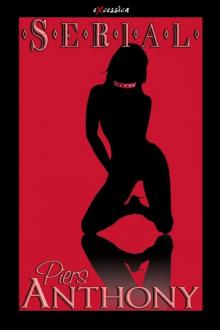 Serial
Serial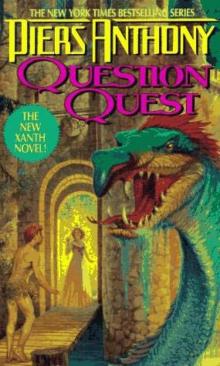 Question Quest
Question Quest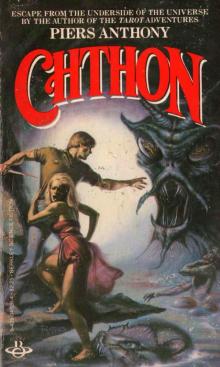 Chthon
Chthon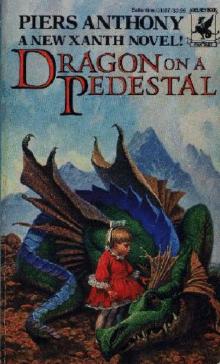 Dragon on a Pedestal
Dragon on a Pedestal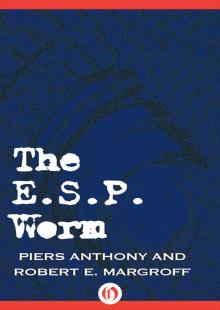 E. S. P. Worm
E. S. P. Worm Hope of Earth
Hope of Earth The Series Boxed Set
The Series Boxed Set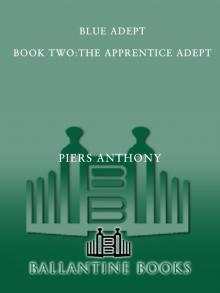 Blue Adept
Blue Adept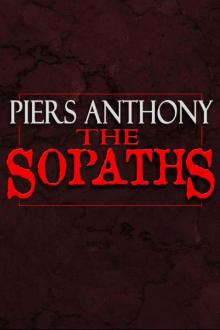 The Sopaths
The Sopaths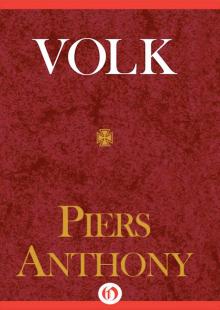 Beetle Juice
Beetle Juice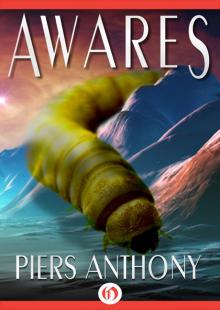 Awares
Awares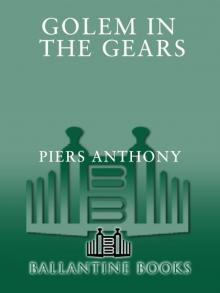 Golem in the Gears
Golem in the Gears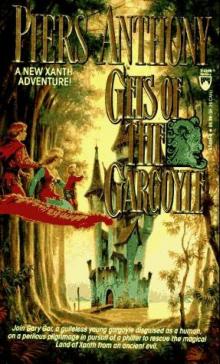 Geis of the Gargoyle
Geis of the Gargoyle Bamboo Bloodbath and Ninja's Revenge
Bamboo Bloodbath and Ninja's Revenge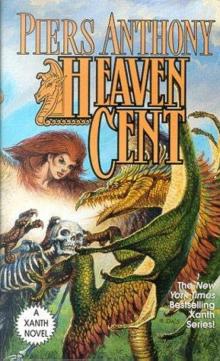 Heaven Cent
Heaven Cent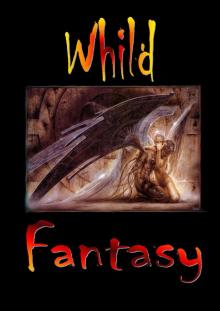 Neq the Sword
Neq the Sword Pandora Park
Pandora Park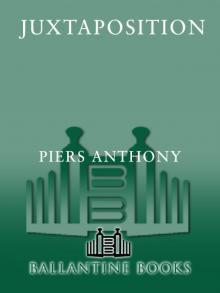 Juxtaposition
Juxtaposition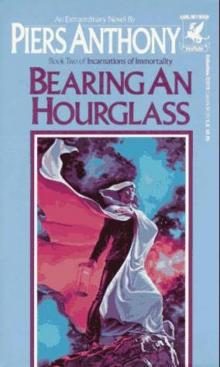 Bearing an Hourglass
Bearing an Hourglass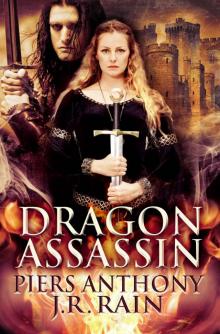 Dragon Assassin
Dragon Assassin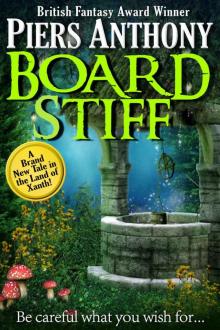 Board Stiff
Board Stiff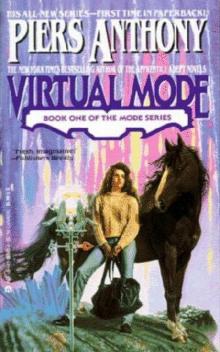 Virtual Mode
Virtual Mode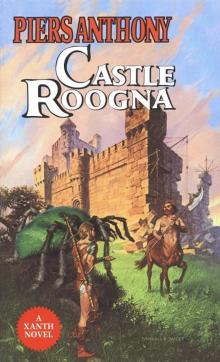 Castle Roogna
Castle Roogna Aliena Too
Aliena Too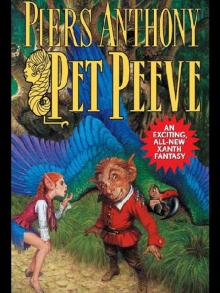 Pet Peeve
Pet Peeve The Metal Maiden Collection
The Metal Maiden Collection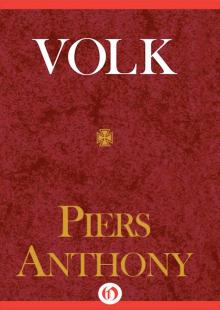 Volk
Volk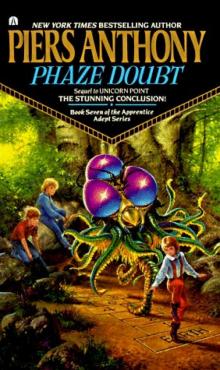 Phaze Doubt
Phaze Doubt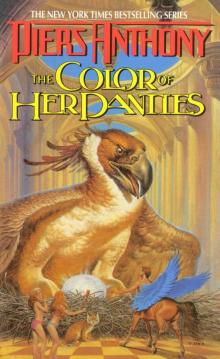 The Color of Her Panties
The Color of Her Panties Amazon Slaughter and Curse of the Ninja Piers Anthony
Amazon Slaughter and Curse of the Ninja Piers Anthony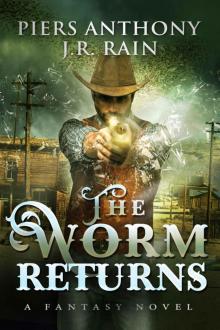 The Worm Returns
The Worm Returns Zombie Lover
Zombie Lover Xone of Contention
Xone of Contention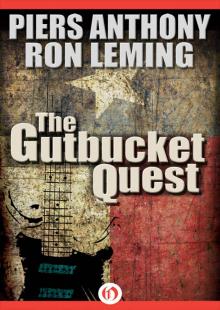 The Gutbucket Quest
The Gutbucket Quest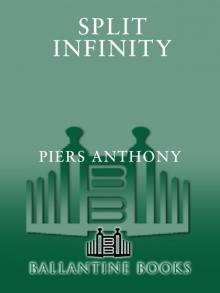 Split Infinity
Split Infinity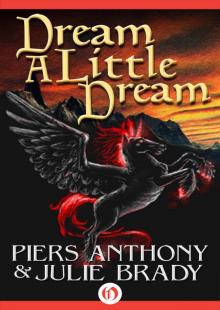 Dream a Little Dream: A Tale of Myth and Moonshine
Dream a Little Dream: A Tale of Myth and Moonshine Balook
Balook Out of Phaze
Out of Phaze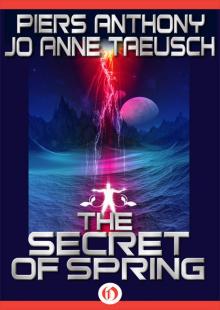 The Secret of Spring
The Secret of Spring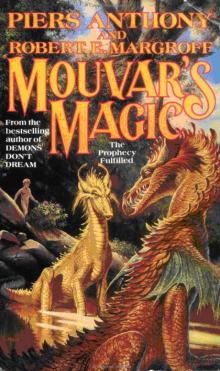 Mouvar's Magic
Mouvar's Magic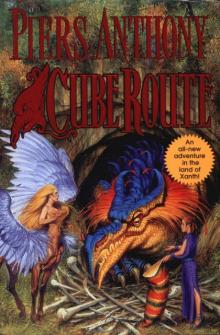 Cube Route
Cube Route Mercenary
Mercenary Total Recall
Total Recall Man From Mundania
Man From Mundania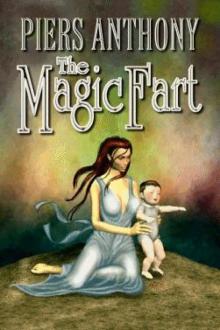 The Magic Fart
The Magic Fart Letters to Jenny
Letters to Jenny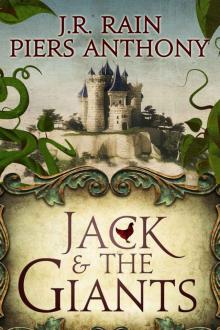 Jack and the Giants
Jack and the Giants Executive
Executive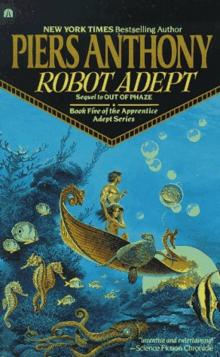 Robot Adept
Robot Adept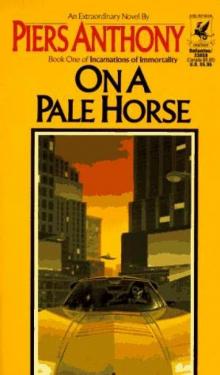 On A Pale Horse
On A Pale Horse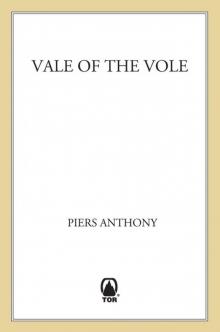 Vale of the Vole
Vale of the Vole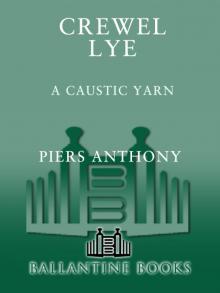 Crewel Lye
Crewel Lye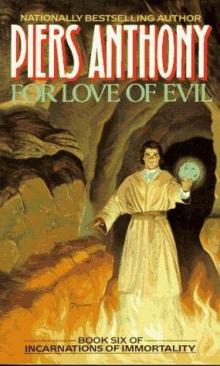 For Love of Evil
For Love of Evil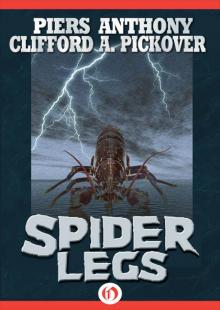 Spider Legs
Spider Legs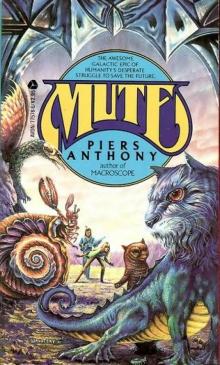 Mute
Mute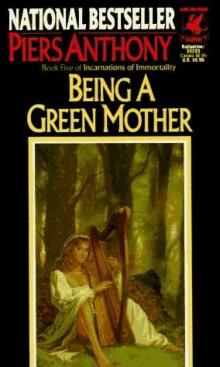 Being a Green Mother
Being a Green Mother Hair Suite
Hair Suite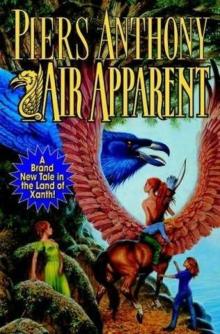 Air Apparent
Air Apparent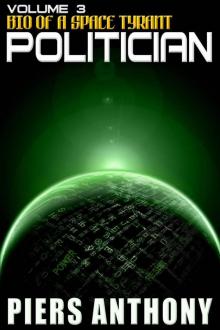 Politician
Politician Aliena
Aliena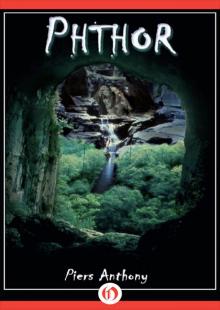 Phthor
Phthor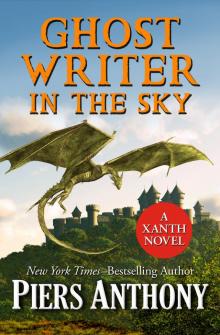 Ghost Writer in the Sky
Ghost Writer in the Sky Pornucopia
Pornucopia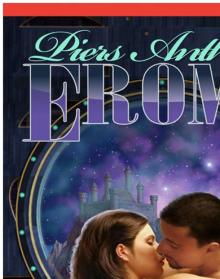 Eroma
Eroma Shepherd
Shepherd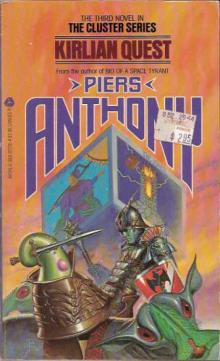 Kirlian Quest
Kirlian Quest Swell Foop
Swell Foop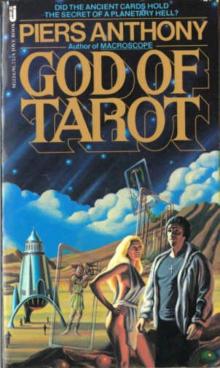 God of Tarot
God of Tarot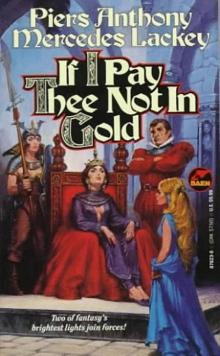 If I Pay Thee Not in Gold
If I Pay Thee Not in Gold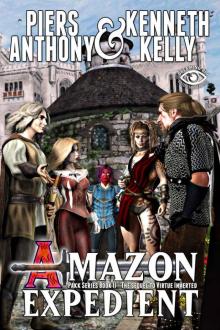 Amazon Expedient
Amazon Expedient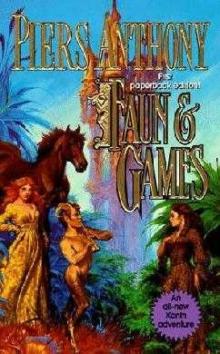 Faun & Games
Faun & Games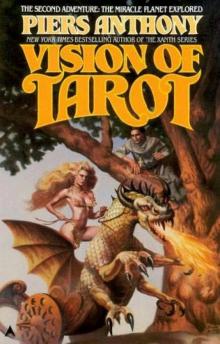 Vision of Tarot
Vision of Tarot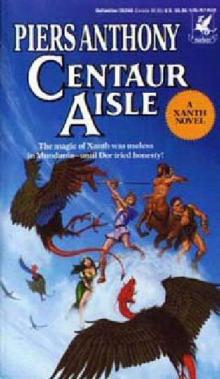 Centaur Aisle
Centaur Aisle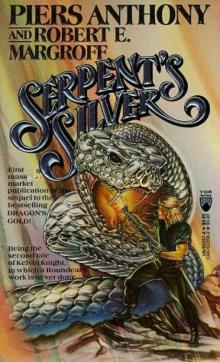 Serpent's Silver
Serpent's Silver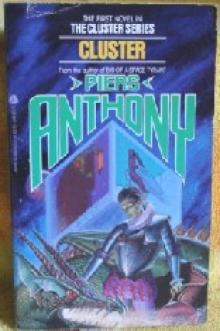 Cluster
Cluster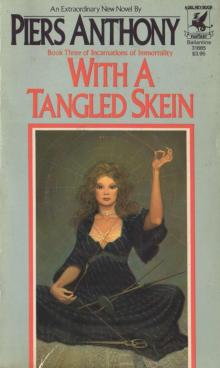 With a Tangled Skein
With a Tangled Skein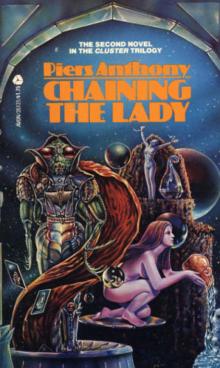 Chaining the Lady
Chaining the Lady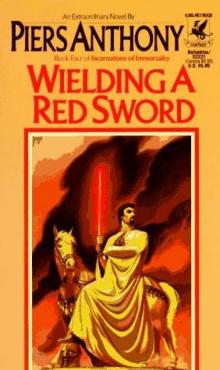 Wielding a Red Sword
Wielding a Red Sword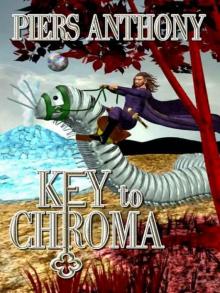 Key to Chroma
Key to Chroma WereWoman
WereWoman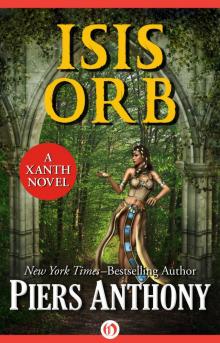 Isis Orb
Isis Orb Hair Peace
Hair Peace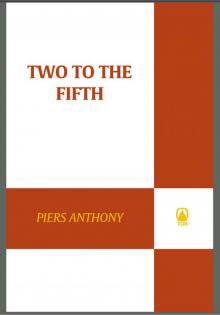 Two to the Fifth
Two to the Fifth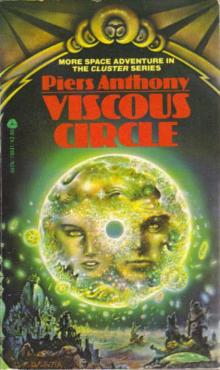 Viscous Circle
Viscous Circle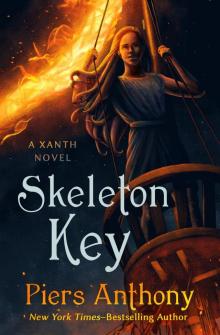 Skeleton Key
Skeleton Key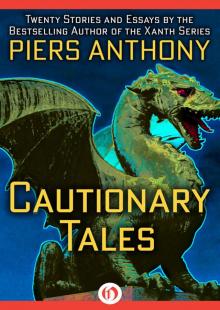 Cautionary Tales
Cautionary Tales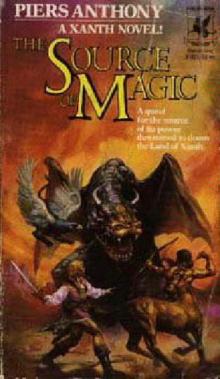 The Source of Magic
The Source of Magic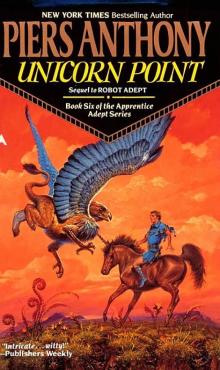 Unicorn Point
Unicorn Point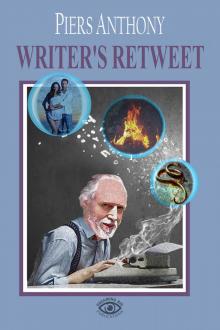 Writer's Retweet
Writer's Retweet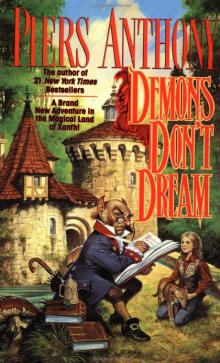 Demons Don't Dream
Demons Don't Dream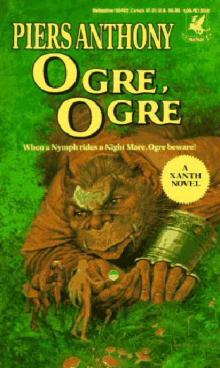 Ogre, Ogre
Ogre, Ogre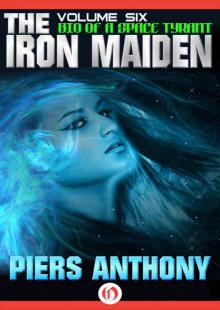 The Iron Maiden
The Iron Maiden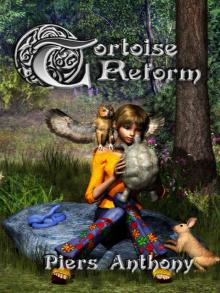 Tortoise Reform
Tortoise Reform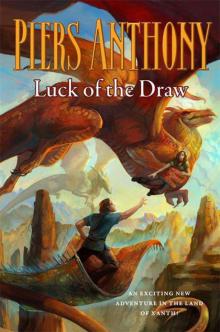 Luck of the Draw
Luck of the Draw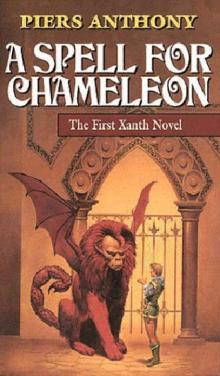 A Spell for Chameleon
A Spell for Chameleon Yon Ill Wind
Yon Ill Wind Currant Events
Currant Events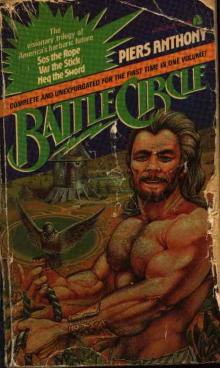 Var the Stick
Var the Stick And Eternity
And Eternity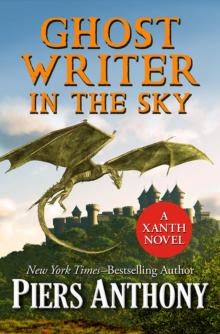 Kiai! & Mistress of Death
Kiai! & Mistress of Death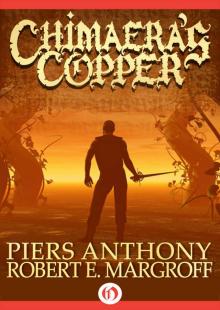 Chimaera's Copper
Chimaera's Copper Refugee
Refugee Isle of View
Isle of View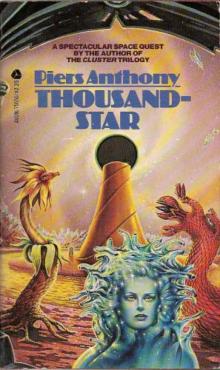 Thousandstar
Thousandstar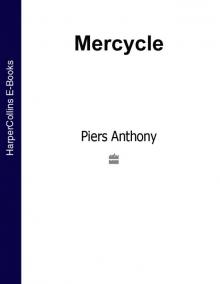 Mer-Cycle
Mer-Cycle Service Goat
Service Goat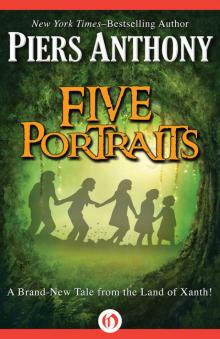 Five Portraits
Five Portraits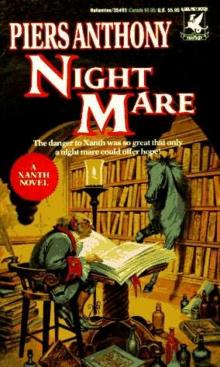 Night Mare
Night Mare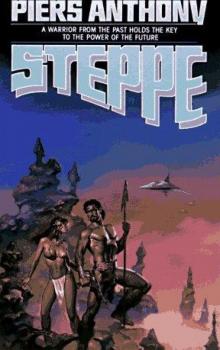 Steppe
Steppe Lavabull
Lavabull Well-Tempered Clavicle
Well-Tempered Clavicle Aladdin Relighted
Aladdin Relighted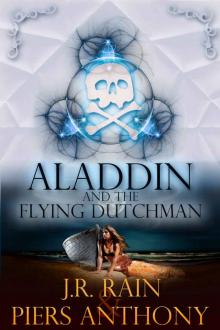 Aladdin and the Flying Dutchman
Aladdin and the Flying Dutchman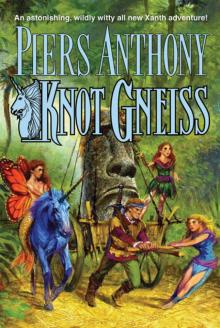 Knot Gneiss
Knot Gneiss Roc and a Hard Place
Roc and a Hard Place Aladdin Sins Bad
Aladdin Sins Bad Flytrap
Flytrap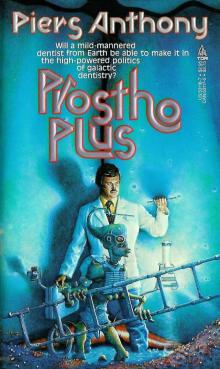 Prostho Plus
Prostho Plus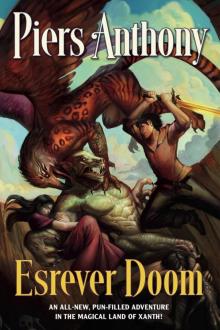 Esrever Doom
Esrever Doom Hair Power
Hair Power The Journey
The Journey Virtue Inverted
Virtue Inverted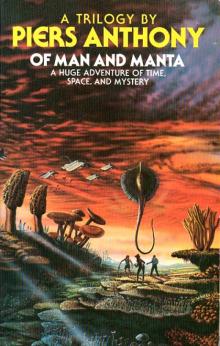 Of Man and Manta Omnibus
Of Man and Manta Omnibus Trail Mix: Amoeba
Trail Mix: Amoeba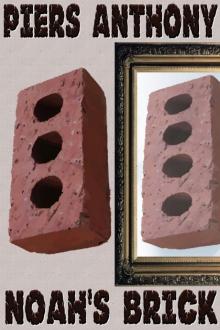 Noah's Brick
Noah's Brick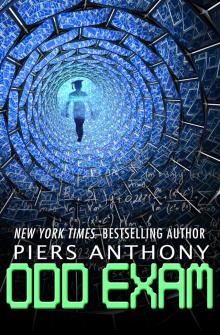 Odd Exam
Odd Exam Magenta Salvation
Magenta Salvation Jest Right
Jest Right Fire Sail
Fire Sail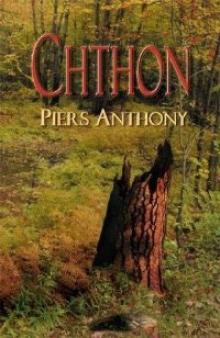 Chthon a-1
Chthon a-1 Amoeba
Amoeba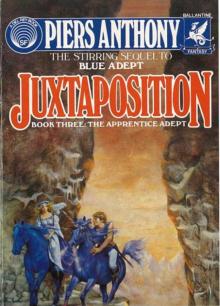 Juxtaposition aa-3
Juxtaposition aa-3 Pira
Pira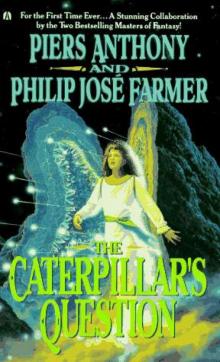 THE CATERPILLARS QUESTION
THE CATERPILLARS QUESTION What Fears Become: An Anthology from The Horror Zine
What Fears Become: An Anthology from The Horror Zine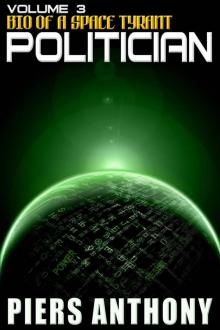 Bio of a Space Tyrant Vol. 3. Politician
Bio of a Space Tyrant Vol. 3. Politician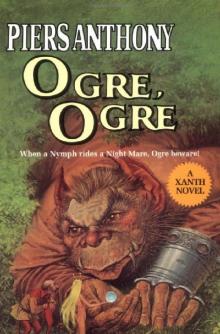 Ogre Ogre x-5
Ogre Ogre x-5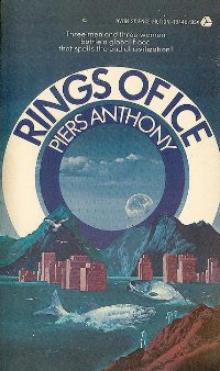 Rings of Ice
Rings of Ice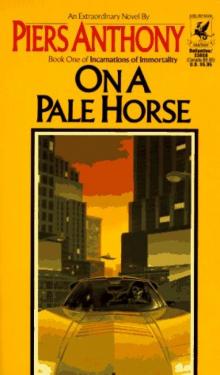 On a Pale Horse ioi-1
On a Pale Horse ioi-1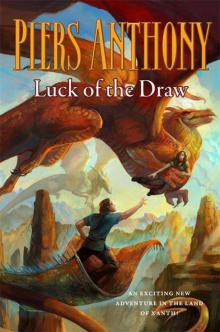 Luck of the Draw (Xanth)
Luck of the Draw (Xanth)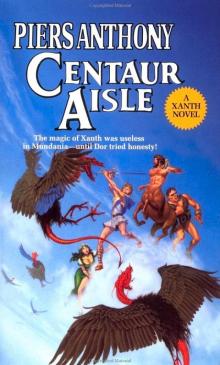 Centaur Aisle x-4
Centaur Aisle x-4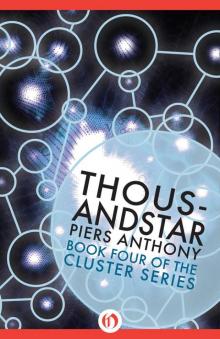 Thousandstar (#4 of the Cluster series)
Thousandstar (#4 of the Cluster series)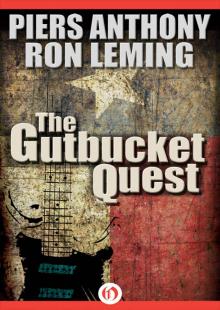 Gutbucket Quest
Gutbucket Quest Isle of Woman (Geodyssey)
Isle of Woman (Geodyssey)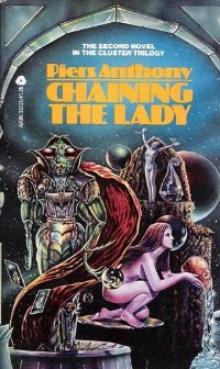 Chaining the Lady c-2
Chaining the Lady c-2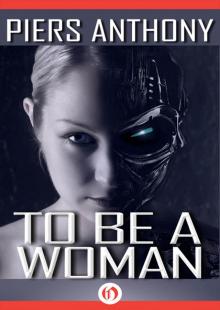 To Be a Woman
To Be a Woman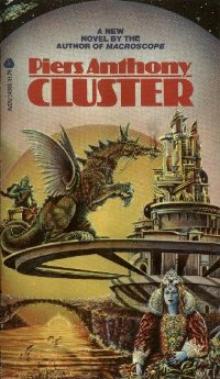 Cluster c-1
Cluster c-1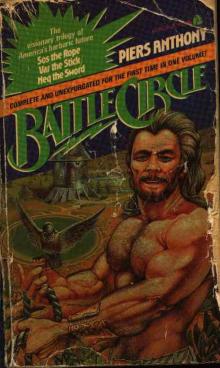 Battle Circle 2 - Var the Stick
Battle Circle 2 - Var the Stick Mercenary (Bio of a Space Tyrant Book 2)
Mercenary (Bio of a Space Tyrant Book 2)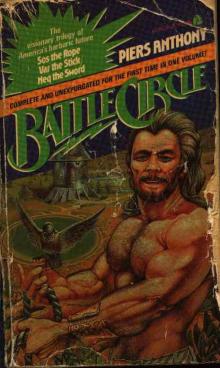 Battle Circle 1 - Sos the Rope
Battle Circle 1 - Sos the Rope Xanth 30 - Stork Naked
Xanth 30 - Stork Naked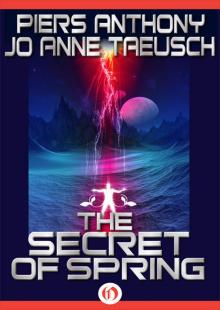 Secret of Spring
Secret of Spring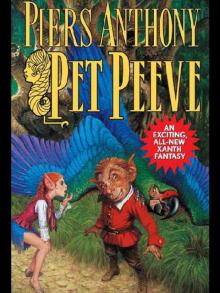 Xanth 29 - Pet Peeve
Xanth 29 - Pet Peeve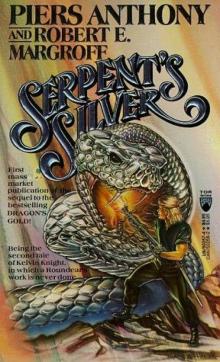 Serpents's Silver
Serpents's Silver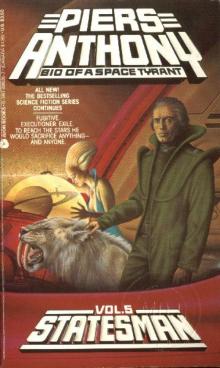 Statesman by Piers Anthony
Statesman by Piers Anthony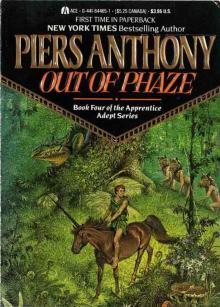 Out of Phaze aa-4
Out of Phaze aa-4 Amazon Slaughter & Curse of the Ninja
Amazon Slaughter & Curse of the Ninja